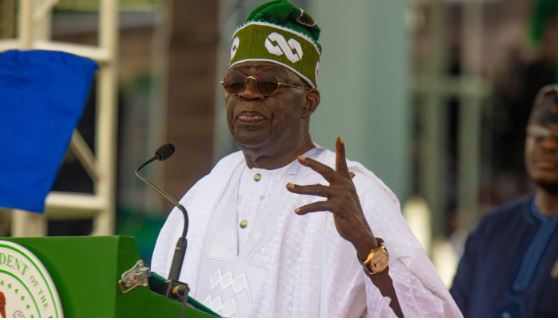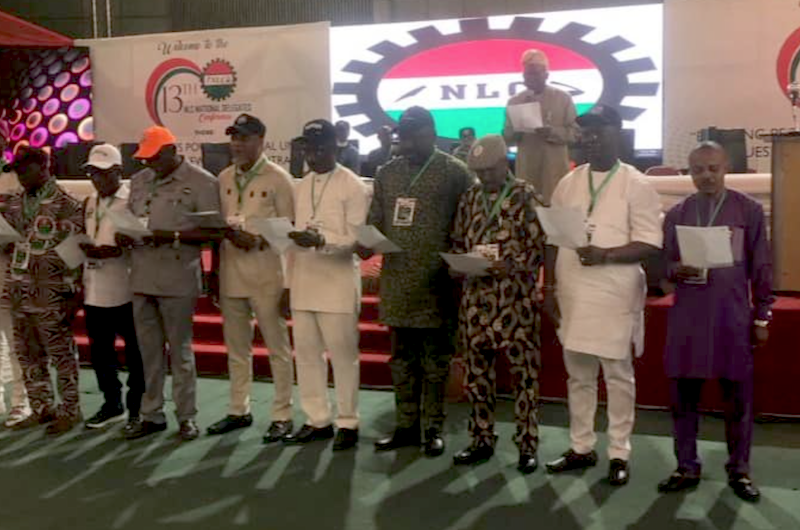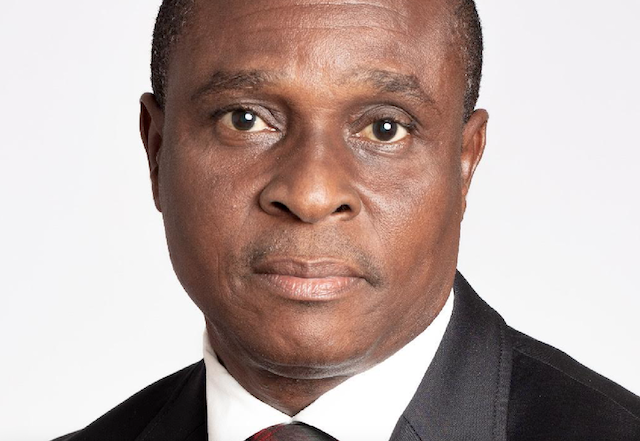Let me say that this is not political campaign rhetoric or is it meant to weigh into any party’s ideology. This is strictly business of labour deals in their collective bargaining power and ways to boost workers’ welfare. It is rather a proposal to organized labour groups to engage more with employers to take advantage of several legislative provisions for employee welfare and maximize workers’ benefits.
Since 2004, pension assets accumulated through the contributory pension scheme are now in the region of N14trn as at end of Q2 2022. Possibly by year-end, another half trillion may be added to the portfolio. Compliance enforcement is subtle, efficient though mutually beneficial – to the government, private sector and workers where there is coverage. This portfolio guarantees that at a certain age beginning at 50 and if you are retired, you can access a lump sum to start a business and thereafter a monthly pension to maintain a modest living standard. In addition to the pension’s provision, every employer is required to purchase group life insurance to cover the death of any worker. The benefit for this lies in the lump sum paid to the family of the deceased employee, which in most cases is the spouse or another named next-of-kin.
In the current budget year, the federal government appropriated N24.7billion for MDAs (Ministries, Departments and Agencies) which is also to DSS insurance of sensitive materials, and youth corps members. This was a 64.7% increase over the 2021 appropriation of N15billion under the same heading. The Q2 report released by NAICOM is even more insightful as life insurance contributed N150billion of the total N369.28billion (20.1 growth for the same period in 2021) generated during the quarter. It shows clearly that life insurance is doing nearly half of the industry premium and if drilled further, it would be found that employees” group life largely accounts for this impetus.
Of these assets, the formal sector of the economy, both the public and private sector accounts largely for this growing portfolio. The informal sector, is so named because its processes are not organized and streamlined to capture much of its revenue and expense items. But this sector is huge and could impact significantly various assets under management.
Compared to the size of pension assets in Q2 of 2022, a gross premium of the insurance industry in 2021 was N630.36bn and N2.4trn assets for the whole insurance industry. While pension assets, formerly under insurance management, at 18 years sits at N14trn, insurance assets in over 100 years are about 20% of the pensions.
The difference between pensions and insurance is the perceived benefits.
Therefore, the 2014 Contributory Pension Scheme Reform Act further expanded the coverage to cover the informal sector and by a stroke of strategic initiative the pensions market launched an ambitious target of bringing 30% of Nigeria’s working population into the CPS by 2024. But it does seem that a significant proportion of this projection is based on the number of employees that can be brought into the scheme through the micro pension. Mortgage borrowing is another incentive that makes pensions attractive.
The micro pension scheme is a laudable plan and includes a mortgage borrowing from RSAs, that is, individual Retirement Savings accounts. This topic will be dealt with broadly and separately. Whilst it presents opportunities for retirees and is capable of enlarging the scope of coverage, there are inherent risks and dangers of which the average ‘borrower’ may be unaware.
Like micro pensions, micro-insurance should also target the underserved informal sector through established associations and groups with a product offering that has a savings component.
As provided in the law, the contributory pension is a percentage deduction from the combined salary of the employee and the employer’s contribution as a percentage of the worker’s salary.
Contained in the pensions Act is also an important provision for a group life insurance policy for every company that has in its employment 5 workers and above. Although this legislation has improved the life assets of insurance companies as well as increased liabilities thereof, many employees are unaware of the benefits to them. The major reason for this lack of awareness of group life insurance on the part of employees is that the funding for it is exclusively the responsibility of employers, unlike the contributory pension which is a contribution by both employer and employee. Perhaps, another major reason for what seems like a lack of interest by labour and employees in the life policy of their employers is that like most life policies, it can only be drawn at the death of the employee while actively employed.
In existence are numerous other third-party liability covers which protect artisans and other skilled workers at construction sites. Even food sellers to construction workers ought to enjoy the protection of insurance policies that ought to be in place against project hazards. Public buildings and tenement houses are also legislated with mandatory insurance for house owners.
The point here is that organized labour appears uninterested in pressing for the provision of these other employee welfare packages. Rather it is occupied with a salary increases, promotions, unhealthy labour practices and unfair treatment of workers in the workplace. These are important pursuits for workplace harmony. However, imagine a situation where all these pursuits are met and employees’ pensions are not remitted for months.
Employees Group Life as an innovative offering
In the process leading to the enactment of the Reformed Pension Act in 2014, stakeholders who would be affected by the amendments played some roles by submitting the memorandums whereas others also participated in various workshops to make favourable inputs to their peculiar needs. It was these sorts of consultations and interest group presentations which birthed the micro pensions and the provision for mortgages. The same would have been the case for the group life insurance as provided in the RPA. The insurance industry may not have identified the opportunity to make more flexible the group plan as offered strictly according to law. By flexibility, I refer to the benefit thereto which accrues only at the death of the employee or when an employee is declared missing.
Nigerians are overtly averse to any benefit that matures only when they die! In our traditions and cultures, we do not plan for death when we have not attained a ripe. Even at that ‘ripe’ age, it is anathema to plan for burial. This presents a huge opportunity for insurance offering that works in this environment.
Further revisions of the group life insurance for employees made mandatory by law may be flexed by insurers to accrue benefits to employees when they leave employment after a certain period of being on the policy. A combination of savings and life or embedding savings in the policy. This would make the policy attractive to employees and may add to real benefits in the life of the worker, particularly when viewed against the backdrop of job insecurity in the country.
Legal Framework and Guidelines
In the revised guidelines on Group Life Insurance for Employees jointly signed by both the pension commission and National Insurance Commission, item 4.6 relating to coverage states, “The insurance company shall ensure that employers comply with the minimum insurance cover of three times the annual total emolument of each employee (i.e. 300% of gross emolument)”. By definition, “Annual Total Emolument, for Group Life Insurance Policy under the PRA 2014, shall be the gross emolument of an employee while Gross Emolument is annual total remuneration for the employee before any deductions.” In italics, I have highlighted the insurance burden.
This part of the guideline may have been misguided by the fact that it expects the insurance company to do the job of enforcement which is the government. It lies with the government alone with its enforcement apparatuses to ensure organizations comply with its legislation.
Section 4(5) of the PRA 2014, provides that “every employer shall maintain a Group Life Insurance Policy in favour of each employee for a minimum of three times the annual total emolument of the employee and premium shall be paid not later than the date of commencement of the cover”.
Further in Section 4(6), situations “where the employer failed, refused or omitted to make payment as and when due, the employer shall make arrangement to effect the payment of claims arising from the death of any staff in its employment during such period”.
Section 8(1) of the PRA 2014 provides that “where an employee dies, his entitlements under the Life Insurance Policy maintained under this Act shall be paid by an underwriter to the named beneficiary in line with Section 57 of the Insurance Act. This section has been reportedly severely and severally contravened by most employers to the detriment of beneficiaries of employees who die during employment. As employers fund this policy exclusively, they often demand that insurers pay them to remit to the named beneficiary of the employee. And in many cases, the payments made by employers, oftentimes loudly in the press do not relate to insurance.
Synoptic criminality had often occasioned this practice as some employers remit only a small proportion to families. Even then the impression is created that the token is an additional help to the family. Insurance is never mentioned. If the labour unions take more interest and demand to know if group life policy is adequately purchased by the employer and subsequently follow up to find if dead colleagues” benefits had been paid to the right family member, this would discourage the apparent fraud in this respect. The labour unions need to take a more active interest in ensuring compliance because their members are involved.
Similarly, insurers must insist that benefit payments are remitted directly to the named next-of-kin and not to the employer.





![[Devotional] IN HIS PRESENCE: You are in labour](https://thenewsguru.ng/wp-content/uploads/2021/12/Screenshot_20211202-092925.png)

